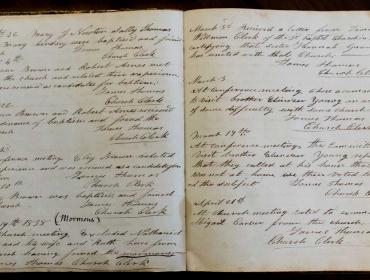Posted July 10, 2019
Last modified July 10, 2019
By Sandy Oliver
The term “seasonable eating” means normal or appropriate to the time of year, as if the weather told us what was good to eat, and not magazines or newspapers, the internet or corporate test kitchens, or especially the produce sections of the grocery stores.
At this house on June 1, we polished off what we presume was last cassoulet of winter/spring 2019.
Cassoulet—heavy with fatty pork, unctuous duck legs, fat little sausages and tons of tender cannellini beans—is rich and savory and unwelcome on a humid dog-day in August. In the run-up to Memorial Day this year, when I still wore flannel and corduroy, and The New York Timesrecommended strawberry shortcake for dessert, that cassoulet warmed the cockles of several hearts around here.
Try as I might to take advantage of what seemed fleetingly to be warmer weather to eat my hot cassoulet on the front porch, summer-fashion, I donned a fleece jacket and put on my fingerless mitts. I chickened out and went back inside as soon as my plate was cleaned. Foolish to think I could sit out there pretending it was warmer.
Drinking gin and tonics or hot whisky punch; eating chowder or cassoulet; all kinds of thick rich soups or all kinds of creamy cold vegetable ones; oatmeal with raisins or granola and yogurt: all are triggered by the weather.
One morning I get up and reach for the granola, and that is that, no thought given. Winter lunch is hot soup; summer lunch is salad greens with leftover cooked vegetables, served cold. Sometime in November, I macerate a slice of lemon with a bit of turbinado sugar in the bottom of a mug, turn in a pour of whiskey, and top it off with hot water. Sometime in June, out comes the gin, the tonic, and a wedge of lime.
Gingerbread tastes better in winter and I probably wouldn’t make blueberry cake unless I had fresh ones, which means July or August. Just because Memorial Day is the start of summer doesn’t mean you ought to eat strawberry shortcake unless you live in New Jersey or Pennsylvania.
For no good reason, some things taste delicious to me year-round: baked beans, for instance. Deviled eggs, chili, roast chicken. I’d rather wait until late May and June for asparagus than eat it in January. Strawberries of any size are best in late June and July, unless they are one of the late season varieties; mind you, they have to be red all through and actually smell like a strawberry. Ditto tomatoes, melons, and fresh corn on the cob—eat them ripe from the garden and field and not the field in California or Mexico.
Years ago, I attended a food professionals conference. During one inter-session break, a big well-known California strawberry grower offered the participants samples of two or three varieties of huge, perfectly-formed strawberries and passed out little cards asking everyone to rate the berries for flavor, texture, sweetness, visual appeal, blah, blah. I watched as the samplers, people whose business was food, took their task seriously, chewing thoughtfully and carefully marking their little cards. The plain awful truth was, all the berries were terrible, hard, white inside, barely tasting of strawberry. The cards never asked, “Are these berries any good at all?”
The big counter-intuitive exception to seasonable? Ice cream. Ice cream tastes no better to me in summer than in winter. I can eat it any time, any temperature. I’d take my mittens off to hold an ice cream cone. Now as soon as you dump a scoopful into root beer or soda to make a float, then I think, perfectly irrationally, it crosses over, into summer fare.
I wouldn’t even think of this, if an editor hadn’t challenged my choice to offer a chili recipe in May. People don’t want to read about or make chili in May, she claimed. I thought, are you kidding me? I was freezing to death, still building fires in my cook stove, and besides, my young friend Pam married to a vegetarian said, “We eat chili twice a week all year round.”
But it made me think: I eat on instinct plus whatever I have around, plus, to be truthful, what I have the mojo to prepare.
If you wonder what to make for supper, first check the weather forecast, poke your nose outdoors and sniff the air. Close your eyes and imagine what will taste good and that is what to cook.
Sandy Oliver is a food historian who lives, gardens, and cooks on Islesboro.

Contributed by




